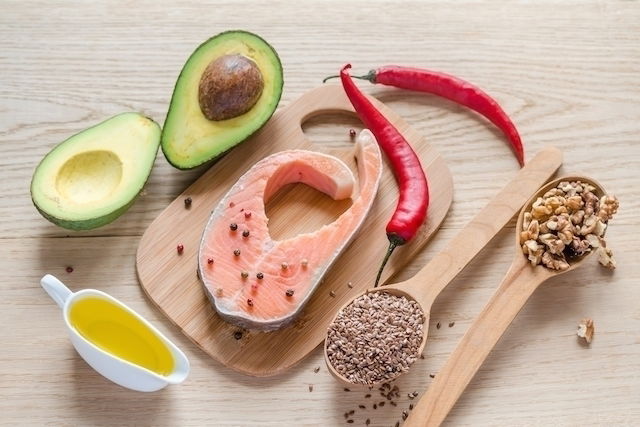The anti-inflammatory diet is an eating plan that aims to prevent and reduce chronic inflammation in the body. This type of diet can prevent the development of several chronic diseases, such as arthritis, diabetes, Alzheimer's, obesity, or even cancer. In cases where the disease is already present, the anti-inflammatory diet can help keep the condition under control, lowering the risk for complications.
Eating anti-inflammatory foods helps to boost the body's natural defenses, promotes healing and decreases the formation of free radicals, all which are factors in slowing down the aging process. These benefits can be achieved by consuming of natural foods rich in antioxidants, and by avoiding red meat and processed foods that are high in fat or added sugars.
Before starting this or any type of diet, it is important to consult a registered dietitian for a detailed assessment and an individualized nutrition plan that meets the individual needs and goals of each person.

Foods that are naturally anti-inflammatory
To follow an anti-inflammatory diet, most of what you eat should be minimally-processed. Examples of anti-inflammatory foods include:
- Herbs: oregano, thyme, cilantro, parsley, mint, or rosemary;
- Spices: turmeric, cinnamon, curry, garlic, cloves, ginger or onion;
- Fatty fish high in omega-3s: tuna, sardines, mackerel, and salmon;
- Seeds: flax, chia, pumpkin, or sesame;
- Fresh fruits: oranges, apples, peaches, pears, avocado, watermelon, cherries, strawberries, blueberries, raspberries, or blackberries;
- Nuts: almonds, walnuts, pecan, pistachio, hazelnuts, peanuts, Brazil nuts;
- Probiotics: yogurt, kombucha, or kefir;
- Vegetables: broccoli, cauliflower, cabbage, spinach, lettuce, brussel sprouts, kale, carrots, celery, and tomatoes;
- Healthy fats: coconut oil, olive oil, flax or chia seeds.
The above-listed foods should, as much as possible, be grilled, sautéed, roasted, steamed, or eaten raw.
Many of these foods contain antioxidants, such as beta-carotenes, polyphenols, anthocyanins, among other phytonutrients. These antioxidants are essential for fighting inflammation.
Fat-free milk and dairy products can take part of the anti-inflammatory diet, or can be replaced with plant-based milks, such as almond, oat, or pea milk. In addition, all refined grains, such as white bread, pasta, or white rice, should be replaced with whole grain versions, as they are far more rich in fiber, vitamins and minerals.
What to avoid
There are some foods that should be avoided in the diet as they promote inflammation and increase the risk of diseases such as obesity, cancer, or diabetes. These foods include:
- High-fat foods such as bacon, all deep-fried foods, whole-fat cheeses, whole milk, margarine, butter, pizza, frozen lasagna, and mayonnaise;
- Processed and deli meats such as sausages, pepperoni, ham, salami, pastrami, roast beef, and bologna.
- High sugar foods, such as cookies, soft drinks, ice cream, artificial juice drinks, and pastries, among others;
- Red meats such as beef, lamb, and pork.
The foods listed above can be consumed in moderation as part of a usual diet, but they need to be eliminated completely if following an anti-inflammatory diet.
3-day anti-inflammatory diet plan
This table shows a sample 3-day menu on an anti-inflammatory diet:
This diet plan is a general example. The amounts indicated will vary according to age, sex, physical activity and health history. It is important to consult with a registered dietitian for a thorough assessment and to develop a meal plan tailored to all individual needs.






























